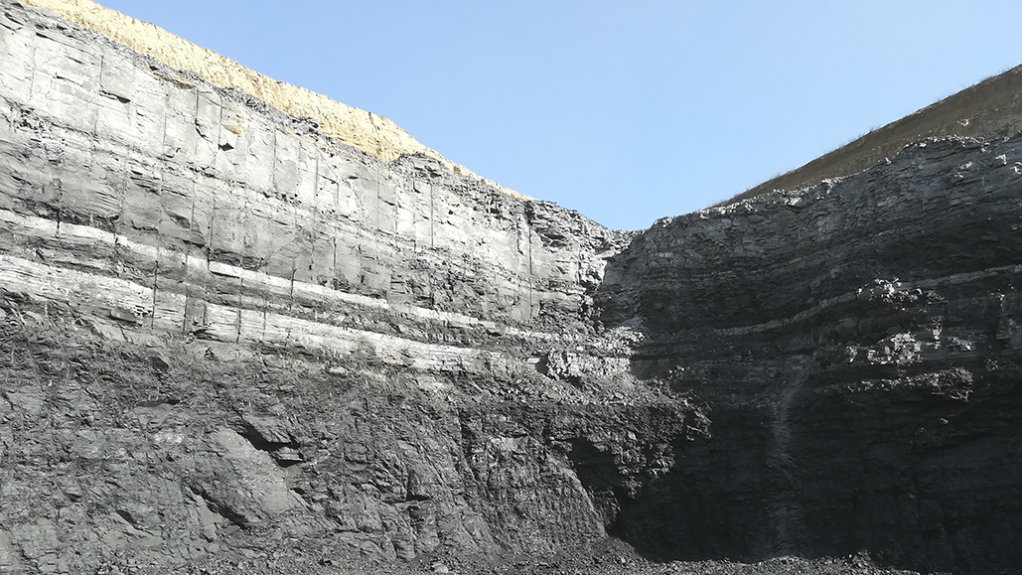While the decision to phase out coal in the global economy has put a damper on the local coal industry, geological consultants Gemecs MD Nico Denner says all is not lost for the Southern Africa coal industry.
Gemecs provides geological services to the mining industry, including exploration management, geological database, and resource modelling services.
“A lot of uncertainty persists, with no clear direction on the road ahead, especially for junior and midtier coal mining companies, many of which are Gemecs clients,” says Denner.
He adds that these junior and midtier coal mining companies are uncertain about the medium-term outlook for their operations and coal projects.
“We are aware of the economic uncertainty our clients face – attaining financing for existing operations and for the development of future projects from traditional financing institutions is becoming a challenge, as banks and other institutions commit to eliminating coal projects from their portfolios,” says Denner.
Junior and midtier coal mining companies play a vital role in the regional and local economy of South Africa, especially in Mpumalanga, where many of these mines are located.
Denner says that more than 100 active coal mines are in operation within an 80 km radius around Middelburg and Emalahleni.
“These mines not only provide direct jobs for thousands of people but also support local communities, as local contractors and businesses depend on their success,” highlights Denner.
Even though coal prices have been surging recently, many of these coal mines are struggling to sell their coal, owing to the negative sentiment around coal mining.
Procurement issues with State-owned power utility Eskom, as well as the limited railing facilities of State-owned freighter Transnet, are aggravating the situation, he adds.
“Clear guidelines and policies are needed to ensure that the transition from coal is handled in an economically responsible way.”
This includes not only the generation of electricity from clean coal technologies but also the supply of high-tech carbon products needed for alternative green energy sources, says Denner.
Coal Conference
Gemecs has established a relationship with nonprofit trust FFF-Carbon Foundation, previously known as the Fossil Fuel Foundation, to establish a link between the coal mining industry and technology experts in clean coal technologies.
“Together with the FFF-Carbon Foundation and consulting company XMP Consulting, Gemecs has arranged a coal conference in Middelburg, called Coal ‘Just Transition’ Explained, on April 1, 2022. We’ve secured leading experts in the field to address the local coal mining industry and businesses on the way forward with clean coal technologies.”
Gemecs, though its association with the FFF-Carbon Foundation, promotes the use of clean coal technologies to allow for the transition to cleaner forms of energy; and supports a growing economic climate whereby these technologies can co-exist to ensure a cheap, clean, reliable and sustainable mix of energy to benefit all continents worldwide, explains Denner.
He adds that proven technologies are available to not only reduce the environmental footprint of coal, including carbon dioxide (CO2), sulphur oxide and nitrogen oxide emissions, but also to convert carbon and CO2 to high-value carbon materials that are critical for the high technology markets and green energy transition.
Coal is not only used to generate energy but has many other uses critical for advanced technology, such as graphene which is made from the carbon content, used in various electronics and solar panels.
Consequently, the decarbonisation drive has resulted in “unprecedented demand” for other high-technology metals and minerals, and has indirectly increased demand for coal-related products.
However, for the coal industry to successfully transition to clean coal technologies, funding and access to these technologies endorsed by the FFF-Carbon Foundation are critical to ensure a responsible turnaround of the coal industry, not only in South Africa but also in Southern Africa, notes Denner.
As Africa accounts for less than 3% of global carbon emissions, and about 600-million Africans do not have access to electricity, Southern Africa needs to play a key role and take the lead by implementing clean coal technologies.
Denner says this will ensure the upliftment of the economic and technological potential of the continent and secure clean, cost-effective and reliable energy for the future.
Gemecs is a geological servicer provider to the coal mining industry. As such, it is “on the ground” and can gauge clients’ perceptions.
Denner concludes that the recent events in Ukraine have, once again, highlighted that with gas and oil prices surging, coal is still a more cost-effective option to provide reliable energy in uncertain economic times.
Edited by: Nadine James
Features Deputy Editor
EMAIL THIS ARTICLE SAVE THIS ARTICLE
ARTICLE ENQUIRY
To subscribe email subscriptions@creamermedia.co.za or click here
To advertise email advertising@creamermedia.co.za or click here













